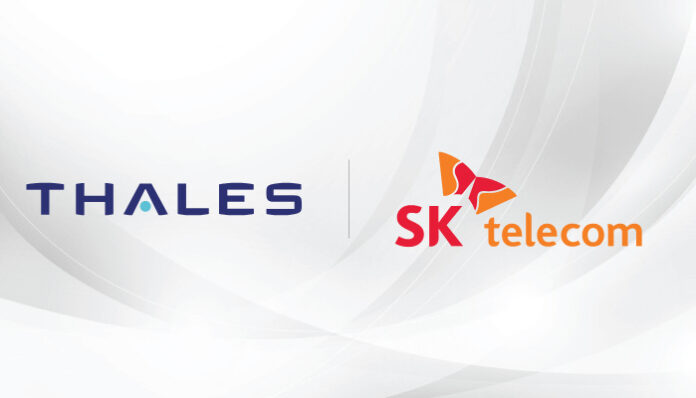In the context of 5G networks and the evolution of cryptographic standards, SK Telecom, the largest mobile operator in Korea, and Thales, leader in digital security, partnered to successfully test advanced quantum-resistant cryptography. Based on 5G standalone network and 5G SIM, the solution aims at encrypting and decrypting subscriber identity in a secure way to protect user privacy from future quantum threats. This achievement is already crucial today as it protects subscribers against potential “record now, decrypt later” attacks. It represents a major step forward since it allows to safeguard subscribers’ identities via a regular commercial telecom network.
The innovation consists in upgrading the cryptography used to anonymize the user digital identity on the 5G network. Indeed, the user identity on a 5G network is concealed and secured on the device side thanks to the 5G SIM. The security mechanisms involve cryptographic algorithms designed to resist attacks from future quantum computers, providing a level of security that is considered robust in the post-quantum era1.
The National Institute of Standards and Technology (NIST) has been leading an initiative to standardize post-quantum cryptographic algorithms, and SKT and Thales have used the Crystals-Kyber one for this successful real condition trial. These post-quantum secure algorithms are being developed to withstand attacks from both classical and quantum computers.
Also Read:
“This collaboration between SKT and Thales highlights our commitment to staying ahead of the curve in terms of cybersecurity and ensuring the safety of our customers’ data. PQC provides enhanced security through the use of cryptographic algorithms that are thought to be secure against quantum computer attacks. Going forward, we will combine PQC SIM with our additional Quantum expertise to achieve end-to-end quantum-safe communications,” said Yu Takki, Vice President and Head of Infra Technology Office of SKT.
“As quantum computers have the potential to break certain existing cryptographic algorithms, there is an emerging need to transition to cryptographic algorithms believed to be secure against quantum attacks. For 5G networks, Thales started to invest on cryptographic algorithms that are quantum-resistant to enhance continued communications security and privacy for users,” said Eva Rudin, SVP Mobile Connectivity & Solutions at Thales.
For more such updates follow us on Google News ITsecuritywire News. Please subscribe to our Newsletter for more updates.









